|
The Secretary General Democratic Patriots party, Chokri Belaid, was a vocal critic of the Tunesian government. He denounced the political violence of the ruling party Ennahda .
What happened? On the 6th of February he was killed in front of his house by unknown gun man. Prime Minister Jebali condemned it as act of terrorism . It was the first time such a killing acured in post-revolutionary Tunisia. Months before Islamist thugs taking law in their own hands, broke up a trade union rally and political meetings of the opposition were Chokri Belaid attended. Before his death he received death threads. A General strike coincided with his funeral. The shocking killing must serve as a wake-up call to the authorities. It is their duty to protect all individuals, including those who criticize the government or Tunisia’s leading Ennahda party, from violence. No group, regardless of its affiliation, can be above the law. (Source Amnesty International) What are the objectives of Democratic Patriots Party? First of all they want to realize the objectives of the Revolution. They want to create a progressive front based on social justice, popular participative democracy, a progressive and democratic constitution that guaranties social and economical rights, equal rights for man and women and a good economic balance between the different regions of the country. Chokri Belaid took a central place at the forum In the lower part of the forum before the entrance of the faculty of Law were everybody had to pass to go to the upper international level and to the middle eastern area below. There was the stand remembering Chokri, there were loud recorded messages played about the new martyr of the Tunisian democratic revolution. At the stand they were selling T-shirts books and when I said I was a blogger they were more then interested to give me an interview. I interviewed Fawzi responsible for the magazine of Democratic Patriotic Party. Fawzy told me that they were able to exchange a lot of idea about the participative democracy. It really feld like a global village to defend the poor and the oppressed. They gave away mask with the head of Chokri on, to remember that everybody could be Chokri and also to show that he still lives on in the harts and minds of the people he represented. On the 30th of March was a manifestation to close the WSF for the day of land. I looked at the first moment that the political rivalries would take over because there were so many people supporting Chokri and Ennahda represented. The murder is a very sensitive issue in Tunisia and Chokri is becoming the symbol of the opposition. Will the spirit of Chokri seduce the harts and minds of the Tunisian people. One thing for sure is the investigation is a sham and they let the gunmen run around freely. Justice needs to be done according to Fawzi.
0 Comments
At the stand of the Palestinians on the World Social Forum in Tunis I was able to talk to one of the directors of the ministry of Foreign Affairs of Palestine, Dr Wael Albettekhi. He claimed that the WSF was a place for social organizations to meet and that the PLO is the Umbrella movement of a lot of political en social movements. I got the official statements that they are against the suffering of the Palestinian People, the closure of the West Bank, the blockade of Gaza, the Judaization of Jerusalem and for the right to return and freedom for Palestinian citizens in Israeli jails. He told me that there were no problems at the Forum and that the majority of the organization recognized their claim for a Palestinian state.
But Other NGO's and Social movements were not so happy with there presence, because they monopolized the debate. There was a Palestinian stand that was fully monopolized and controlled by the PLO. A lot of Palestinian organizations were not so happy with this. During the debates they didn't let a considerable amount of people speak freely. There was a big critic that governments like the PLO proclaims itself should have a space on the WSF. It became a sensitive issue because the original values that the WSF should be an open-space for dialogue and encounters was not fulfilled. It was like the PLO had a private stand were the meeting place for Palestinians had to be. A lot of organizations didn't see this coming, some didn't participate because of this. This was one of the biggest mistakes of the WSF according to the militants for the Palestinian cause. John Hilary: “World Social Forum has to become a global movement with political aspirations”3/31/2013 John Hilary is the executive director of the British NGO War on Want. They have partnerships with different social movements and trade unions. His organization promotes Global Justice. He was at the World Social Forum (WSF) to get in touch with progressive forces and social movements.
Around which themes does War on Want work? There are two themes. First of all is economic justice, fights against the capitalistic system, trade justice, unequal exchange and the role of multinationals. Secondly to fight colonialism and imperialism. Why was the WSF so important for your organization? Because we are active around colonialism and the struggle for Palestine, the Sahraoui and the Nato thread in the Middle East and North Africa. Also because of the new free trade agreement of the EU with the Agadir countries ( Morocco, Tunisia, Jordan and Egypt) we consider it as a new tentative of imperialism of the EU. Here we were able to talk to a lot of comrades about these issues and make new partners and political links. What was your impression of the WSF 2013 in Tunis? The fact that the PA (Palestinian Authority) was represented was really bad, because social movements and organizations from Palestine were afraid to come. USAID had a stand and people were asking what they did here. There were actually two forums, one for the international community on the top of the hill around economic justice and environment below the hill there was the Arab mobilization. There were few interactions between the two places. You could see that at the talks around Palestine and Iraq there were mostly Arab people. What brings the future? That's a big question, were do we go next. It was an open space, but more people are thinking that we should create a global movement for political change. It's nice to talk in a sunny place, but we need to act. Also one of the Founding Fathers, Chico Whitaker, claimed for years it should be an open space, but now he declared before the WSF 2013 that it should become a global political movement. We can say that capitalism is in crisis and we see the worst form of capitalism reviving with austerity measures. I think social movements have failed in this struggle to give other models a chance in the Western World. In the Western World political change is less possible because the state is to anchored in society and is too strong. In Bolivia this was possible because the state was weak. Pedro Santana is the president of the Colombian organization “Viva la Ciudadania”. He is also one of the founders of the World Social Forum (WSF). He was for 4 years head of the methodological assembly of the WSF. He is a sociologist and philosopher who created in '89 his organization as the result of a social movement for a new constitution in Colombia. I met him in the hotel lounge of our hotel, were he was willing to give me an interview about how the process started in 2001 in Porto Alegre. And has now become a world wide movement and interaction point of the civil society.
What are the objectives of Viva la Cuidadania? We are an organization based in the rural areas and also in cities. We focus on the participation of civilians in the political process. We educate people and we give information. We have a newsletter in Colombia with more than 60 thousand subscribers. Are the problems in Colombia global problems? Yes, because the problems that are tackled in the WSF are the same as in Colombia. We share a lot of similar problems as the one's the WSF were based on. These we have to attack together with other organizations all around the world. The problems in Colombia are for example: the armed conflict, the drugs trafficking, social exclusion, indigenous right, environmental problems, the struggle for social rights, the struggle of small farmer's against the big multinationals. Why is the WSF not an event, but a process? It's the 10th time we organize a global event, but there are many local events and national events, because a global movement needs a local and national base. The interactions that happen at the WSF are long term interactions, people meet on the forum and continue working together in the future. We can say that it's becoming more a movement than a forum. Because we represent counter current against Neoliberal ideology. We opted to expand it world wide and make forums all over the world and around different subjects. How did the WSF shape this world? In a world were they declared the end of the history. The Washington Consensus declared in the nineties that Neoliberal ideology would dominate the world until the end of history. The WSF created in this setting the conscience that an other world is possible. At this moment the forum represent the eruption of this slogan. It's the opposition against the simple idea that Neoliberalism dominates this world. It criticizes the one-track thought and the totalitarian thought that doesn't take in account poverty and that the only world possible is the one of profit and the one of globalization. The Forum represents this counter current. In which stage of the WSF are we? We started of in Porto Alegre in 2001 and in 2004 it was held for the first time outside Brazil (in mumbai) to expand it to other regions and create this global movement. In 2006 it took place in Bamako, Karachi and Caracas, in 2007 in Nairobi, in 2011 in Senegal and now in Tunis. We held it in Nairobi in 2007 because the Washington Consensus said that Africa was a lost continent. The big capitalist casino said that Africa was death. We showed the world that Africa is resilient and we made the invisible visible. Now there is Tunis, were we show the world that we were right that an other world is possible in Africa. North Africa prepared during 7 years for the forum, we made visible how their culture has been stigmatized and how much violence has been done against them. The had to take it up against undemocratic regimes and this struggle they called the Arab Spring. They got rid of Ben Ali, Mubarak and Qaddafi in a revolution for freedom, civil rights, woman’s rights and against exploitation and poverty. For this we are here we are here to help them in their struggle. What was the impact of the WSF in Latin America? In Latin America the movement succeeded in the reconstruction of democracy in most of the countries. These countries have changed the international regime and got more autonomy. The poor people and the excluded got in power and the got more control of human resources and claimed more public goods. The democratic regimes have a more autonomous relation with the United States and with the international centers of power. After the first WSF in 2001 in Porto Alegre a lot af progressive presidents came into power in Latin America, it created a real political revolution with Lula in Brazil, Tabaré Vasquez in Uruguay, Correa in Ecuador, Kirchner in Argentina, Ortega in Honduras, Lugo in Paraguay and Evo Morales in Bolivia. In the WSF 2002 Lula was a guest and after his election he said the if the WSF wouldn't unblocked the harts and minds of the Brazilians he would never have been president of Brazil. The other progressive presidents followed on this wave of Chavez and Lula in Power in Venezuela and Brazil. What are the most important characteristics of the WSF in Tunis? The forum is an open space with a lot of plurality and diversity. It's based on the secular principles, this is what it bring to the Arab culture. There are a lot of people from all parts of the world with different experiences. We promote an exchange of ideas and experience. It's also a place to network and to bring people together. It's a real cocktail, with more than 1000 activities this year. There are no indicators to measure the impact, but in Latin America there has been a big evolution in the mind set of people thanks to the WSF. Here in Tunis I gave some lectures and I noticed that 40% of the attendants were young Tunians students. For them it will be really difficult to wake up again after the WSF in a regime that is very conservative, while the forum was so open. We learned them that here that god doesn't make politics, but people do. (c) Willemjan Vandenplas 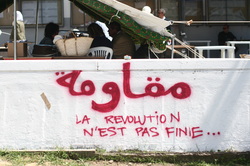 Francis Fukuyama stelde in '92 in zijn boek het einde van de geschiedenis dat het neoliberalisme overwonnen had. In 2001 gaf de mondiale civil society met het eerste Wereld Sociaal Forum (WSF) in Porto Alegre (Brazilië) weerwoord: een andere wereld is mogelijk! In 2002 werd het opnieuw georganiseerd, met als gast presidentskandidaat Ignacio ”Lula” Da Silva. Toen hij president werd later dat jaar vertelde Lula dat hij de verkiezingen niet gewonnen zou hebben moest het WSF in 2001 de harten en de geesten van de Brazilianen niet ontgrendeld hebben. Ondertussen heeft Lula in Brazilië en ver daarbuiten voor verandering gezorgd. Het WSF heeft een onmeetbare impact op de wereld. Het is een proces dat mensen samenbrengt die ervaring uitwisselen die soms heel divers is. Van 26 maart tot 30 maart werd het WSF in Tunis gehouden. Fotograaf Willemjan Vandenplas was aanwezig op de slotdag toen al de grote organisaties al naar huis waren en de Tunesiërs terug wakker werden in een conservatief regime. Dr Wael Albettrekhi, Palestijn van de nationale PLO delegatie en directeur generaal bij buitenlandse zaken van de PA (Palestijnse Authoriteit. Albethekhi: “ Het WSF is een open-space voor sociale organisaties waar wij onze rechten kunnen opeisen. Wij van de PLO eisen dat de Palestijnse staat herkend wordt, dit kreeg weerklank bij de meeste organisaties op het WSF. Wij willen dat “De Appartheid” stopt.” De sluitingsceremonie was een mars voor Palestina, op de dag van het land. Hier kwamen de verschillende organisaties samen en stapten samen naar de Palestijnse ambassade Mamadou Saa, Mauritanië, Nationaal Forum voor de Rechten van de Mens. Saa: “Het forum is één van de weinige momenten waarop heel ons netwerk samenkomt. Het is nu de derde keer dat heel ons netwerk deel neemt. Het is belangrijk voor ons om hier gemeenschappelijke werkpunten te vinden. Dit is belangrijk voor onze coördinatie.” De Braziliaan Eduard Carvalho verantwoordelijke voor sociale inclusie bij BNDES een Braziliaanse ontwikkelingsbank. Carvalho: “ Ik was aangenaam verrast door WSF in Tunis 2013. Het was vooral belangrijk voor de Tunesiërs. Voor andere landen was het belangrijk dat ze hun situatie en hun recente ontwikkelingen leerden kennen. Ik ben blij met de weg die we hier hebben gevolgd. Brazilië kan dienen als een voorbeeld voor de sociale ontwikkeling van Tunesië. We moeten de situatie verbeteren van de armste lagen van de bevolking. Wij hebben hier interessante uitwisselingen gehad met het Arabische volk.”
|
Archives
January 2015
Categories
All
|
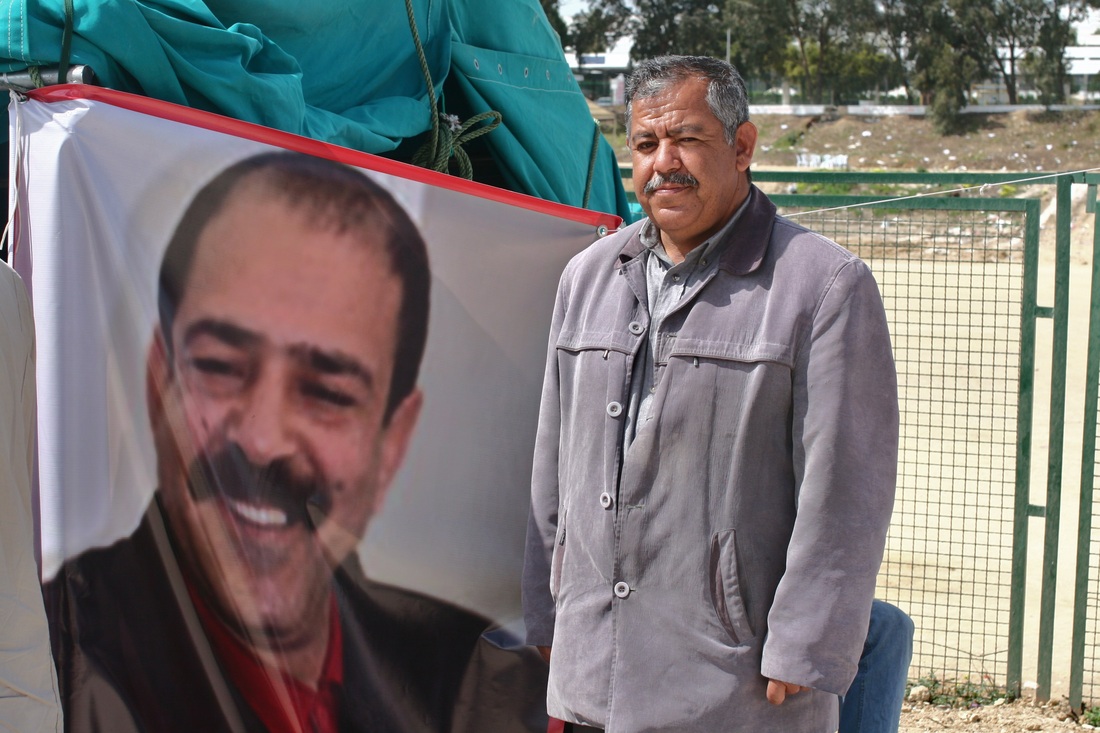
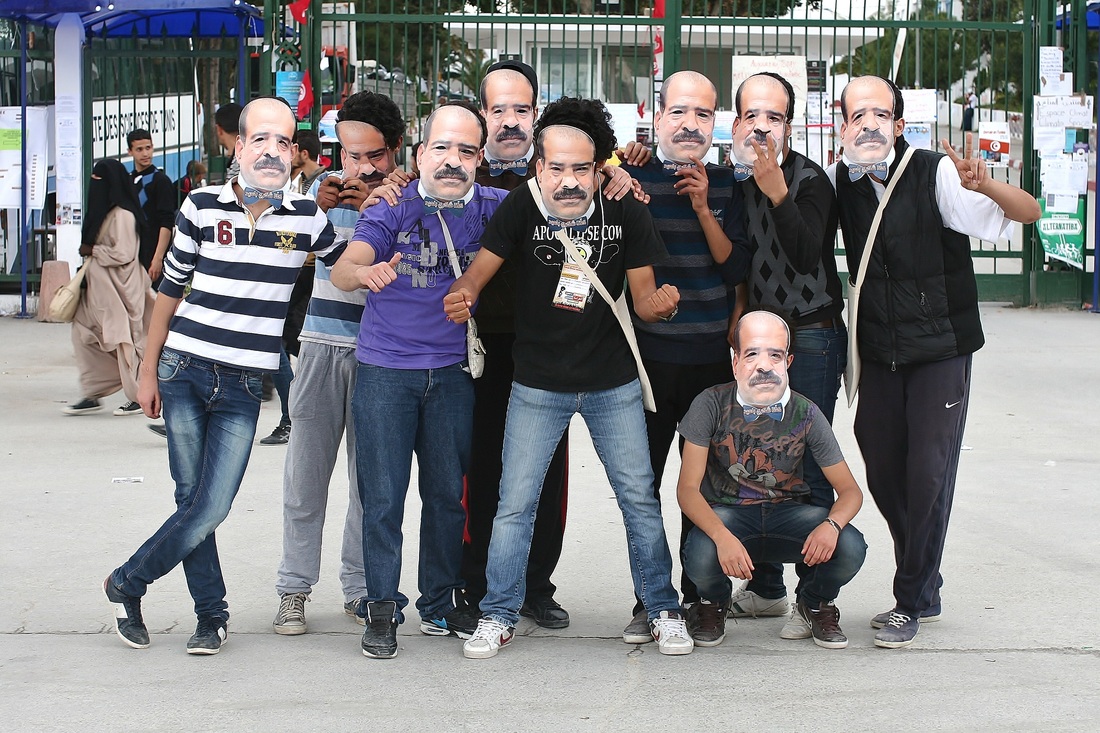
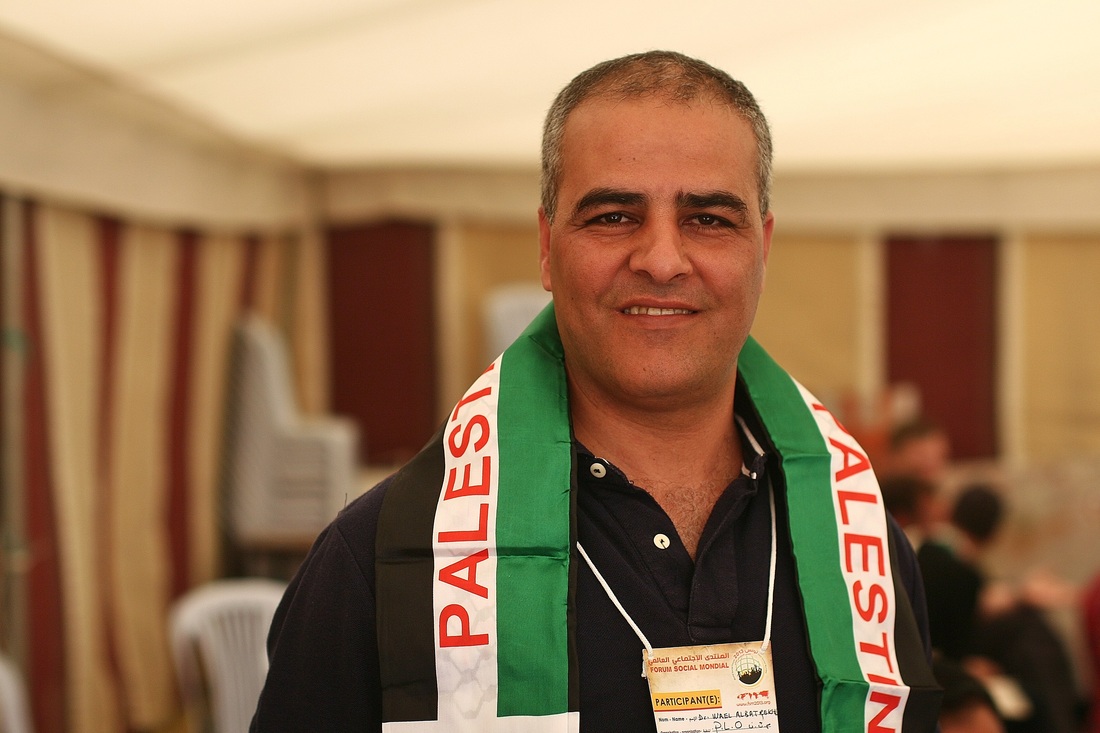
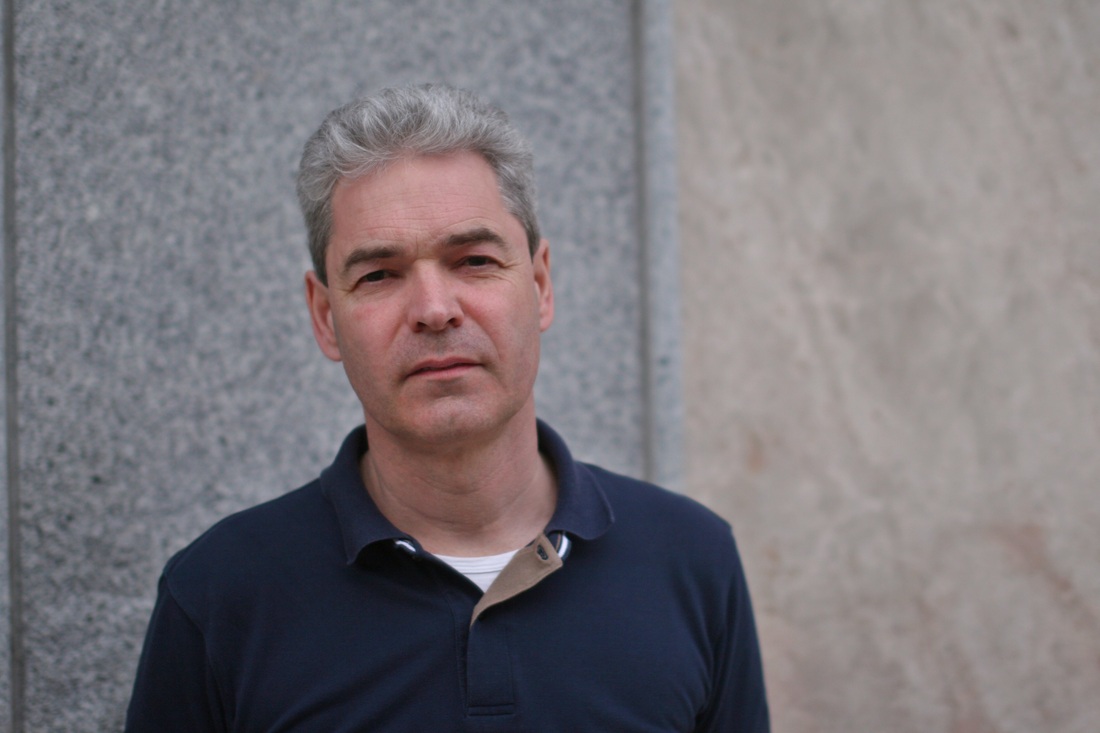
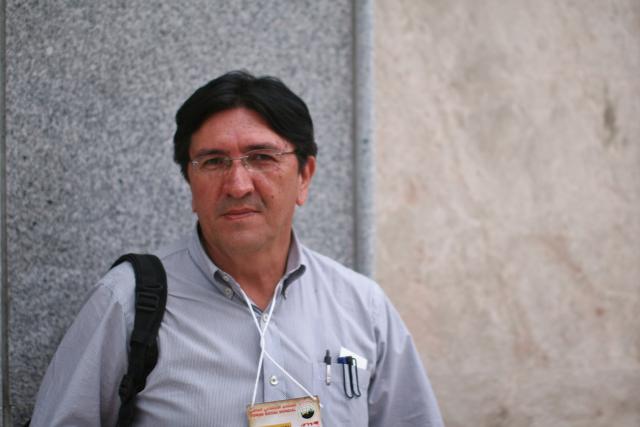
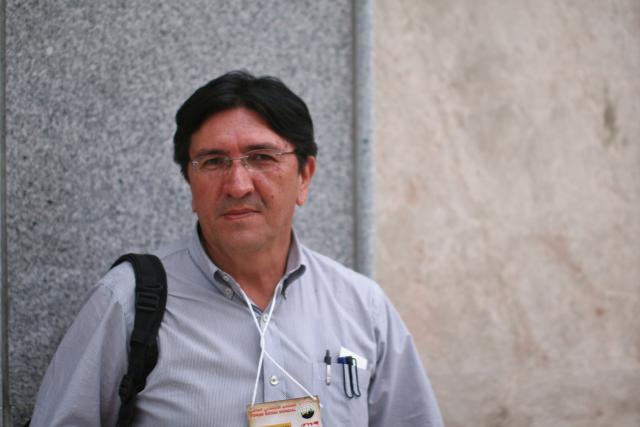
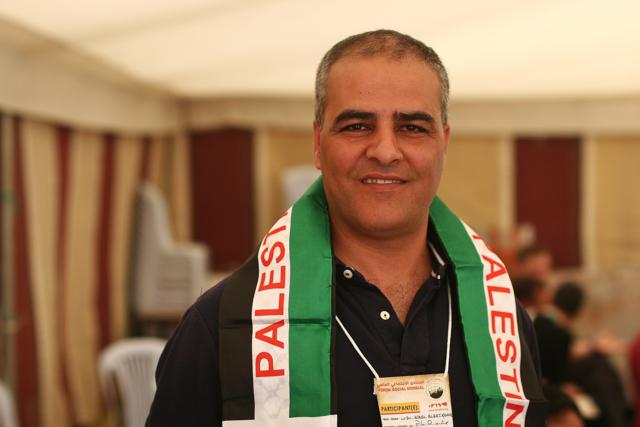
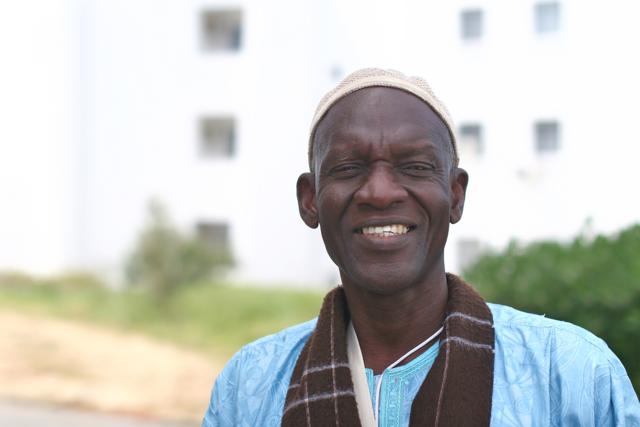
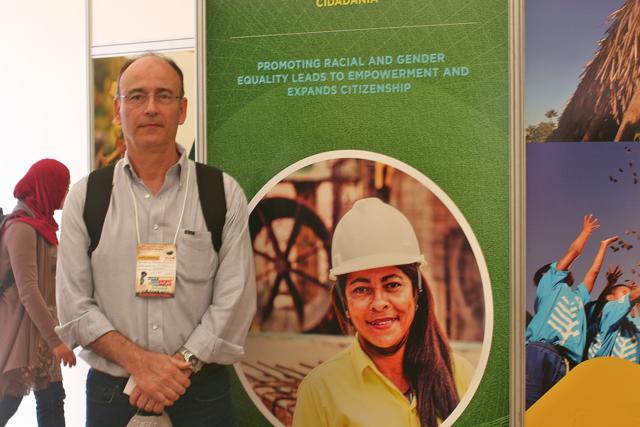
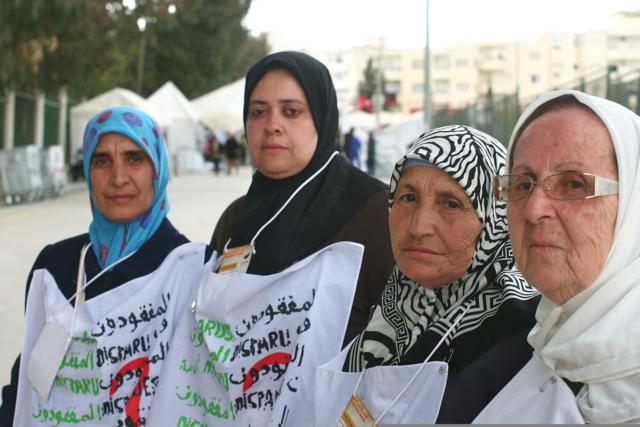
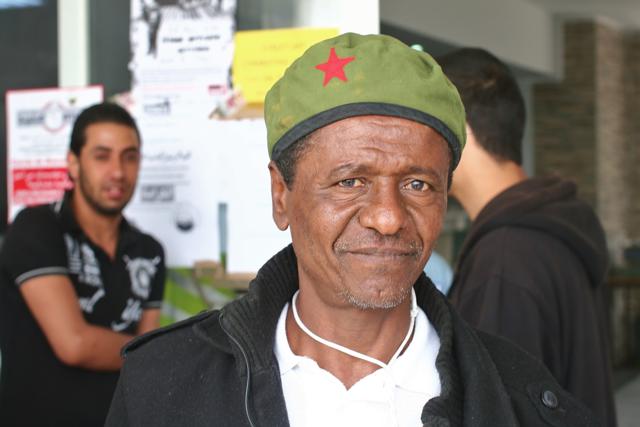
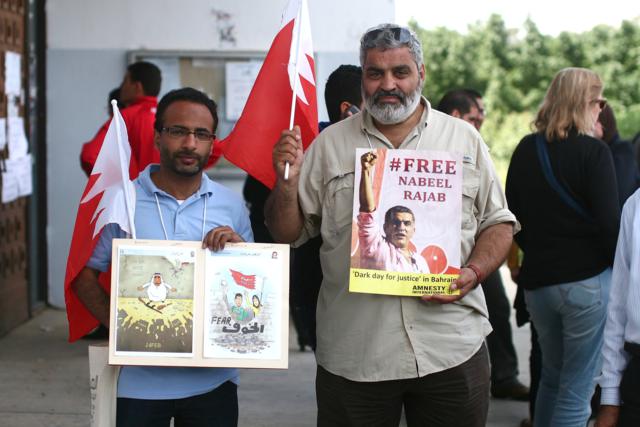
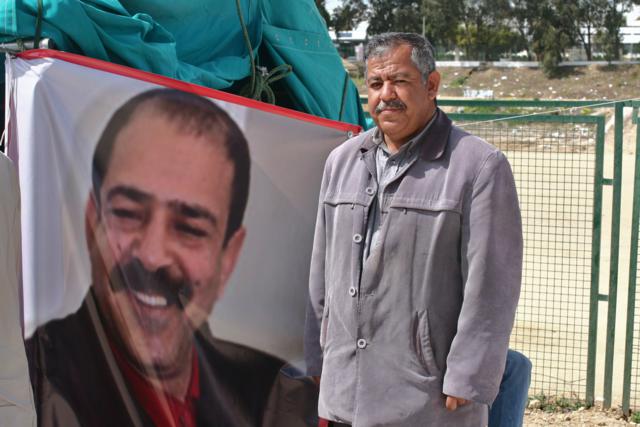
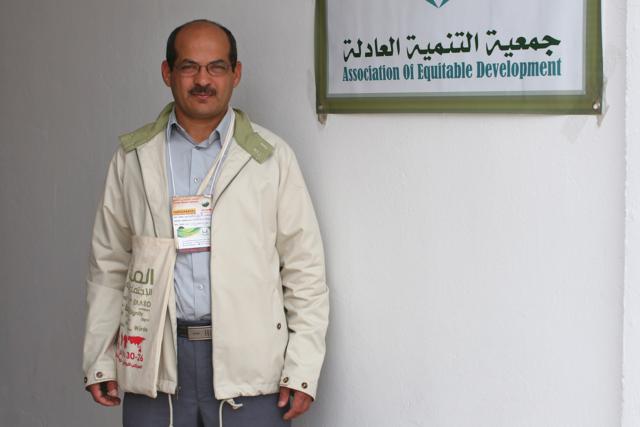
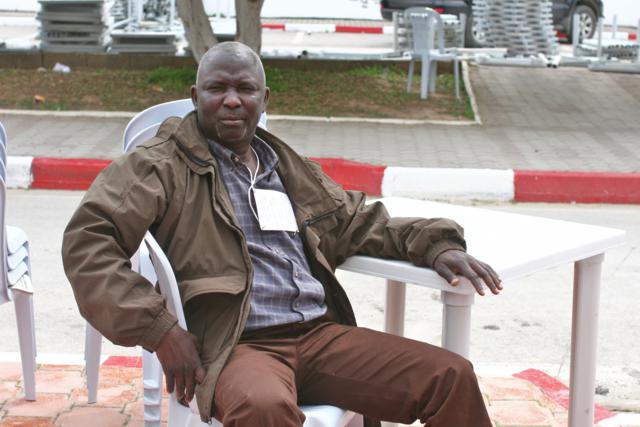
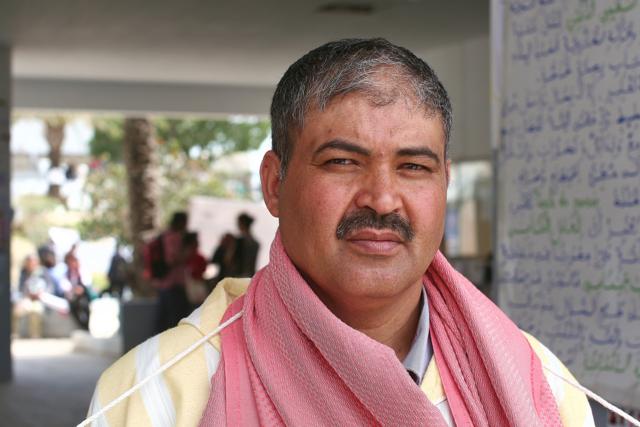
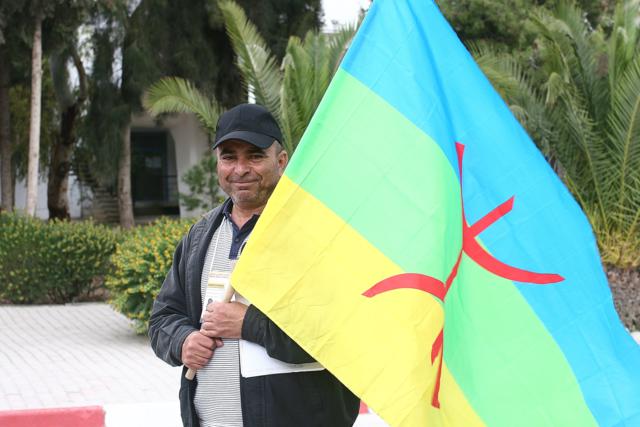
 RSS Feed
RSS Feed
